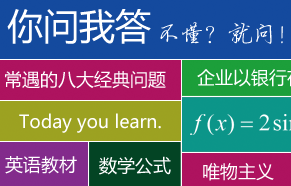形容词
(1)sleepy 瞌睡的,疲倦的 e.g. The warmth from the fire made her feel sleepy.
asleep 睡着的(只作表语)e.g. Quiet! The baby has fallen
asleep!
(2)respectable 受人尊敬的 e.g. Marry is a respectable married woman.
respectful 尊敬人的 e.g. The soldiers lowered their heads in respectful
silence.
respective 各自的 e.g. The two friends said goodbye and went their
respective ways.
(3)live 活的,有生命的(作定语);直播的(节目)e.g. Mother bought some live fish yesterday. live
program实况转播节目,直播的节目
alive 活的(作表语)e.g. None of my grandparents are alive
now.
living 活着的,(尤指)现在的 e.g. He is one of the greatest living
composers(作曲家) in the world.
lively 活泼的 e.g. He is always a bright and lively child.
(4)like 相像的 e.g. He looks like his brother.
alike 相像的(作表语)e.g. My mother and I are alike in many ways.
likely可能的. e.g. He is likely to be absent from school
today.
(5)dead死的 e.g. There was a dead person lying on the ground.
deadly致命的 e.g. John invented a deadly poison.
(6)sensitive 敏感的 e.g. Lara’s sensitive about her
figure(身材).
sensible 明智的,意识到的 e.g. I think it’s a very sensible suggestion.
(7)efficient 效率高的 e.g. He got a efficient secretary.
effective 有效果的e.g. The ads (广告) were simple, but remarkably(非常) effective.
proficient 熟练的 e.g. Martha’s proficient in Swedish.
sufficient足够的 e.g. His income is sufficient to keep him comfortable.
(8)considerate考虑周到的. e.g. It is considerate of you to buy me so many
clothes.
considerable相当大的 e.g. Her work had a considerable influence on generations of artists.
(9)successful成功的 e.g. He is a successful businessman.
successive连续的 e.g. The basketball team has had five successive
victories.
(10)principal主要的 e.g. My principal source of income is teaching.
principle原则(名词)e.g. I am a person of principle.
3)副词
(1)altogether/all together
altogether意为“完全”(=entirely)或“总的说来”(=on the whole)。例如:
He was not altogether satisfied. 它不完全满意。
Altogether, he was satisfied. 总的说来,她是满意的。
all together意为“一起”或“总共”。例如:
Let’s sing the song all together. 让我们一起唱歌吧。
All together fifty people have registered. 总共有五十个人登记了。
(2)either/neither(任何一个/两者都不)
两者都可用作限定词和不定代词,可以构成关连词either…or, neither…nor。除上述用法以外,他们还都可以用作副词,either用在否定句中或否定词后,表示“也(不)”;neither/nor则用于句首表示“也不”,语序要倒装。两句的上下文都要求是否定句。试比较:资料来源:31省市学位英语网www.31xuewei.com
She didn’t go and I didn’t go either. 她不去我也不去。
She didn’t go and neither didI.
例:I couldn’t find Peter, ____did I know where he had gone.
A.never
B.either
C.nor
D.as
『正确答案』C
『答案解析』本句的意思是“我找不到彼得, 也不知道他去了哪里。”nor“也不”,置于否定句之后,在nor之后接“助动词+主语+动词”或“be动词+主语”的倒装句。
(3)late/lately/later/latter
late可做形容词或副词,意为“晚的、迟的”;lately为副词,意为“近来,最近”,与recently同义。later除了可以作为late的比较级以外,还可单独作为副词使用,意为“后来,以后”;latter是形容词,意思是“后者的,后一半的”;也常和former一起构成名词性替代词,如“the former…the latter” “例如:
He is often late to class. 他经常上课迟到。
They moved into a new house lately. 他们最近搬进了新房。
Later, Cary and Tim came to join us, too. 后来,Cary和Tim也参加到我们中间来了。
He spent the latter half of his life inOxford. 他的后半生是在牛津度过的。
(4)most/mostly/almost
most:“最”,修饰形容词和副词的最高级。mostly:“通常,在多数情况下”。almost:“几乎”。例如:资料来源:31省市学位英语网www.31xuewei.com
This is the most interesting novel I have ever read. 这是我读过得最有趣的一本小说。
She is mostly out on Sundays. 她星期日通常外出。
It was almost dark when he reached there. 他到那里的时候,天差不多黑了。
4)动词
(1)adopt/adapt
adopt是“采纳”的意思。adapt意思是“使适应”。例如:
We shall adopt your methods of teaching in our schools.我们应当在我们学校采用你的教学方法。
I have adapted myself to the climate ofBeijing. 我已经适应了北京的气候。
(2)assure/ensure/insure
assure的意思是“使(某人)确信”,一般用作:assure sb. of …或者assure sb. that…,后面不能直接跟that从句。
ensure的意思是“保证”,后面可以接双宾语,也可以接that从句。
insure的意思是“给…上保险”。例如:
He assured me that it was true. 他让我相信这件事是真的。
We can’t ensure you a good post. 我们不能保证给你一个好的职位。
My house is insured against fire.我的房子保了火险。
(3)bring/take/fetch/carry
bring (vt.)带来:表示从别处把某人或某物拿到说话者处。
take (vt.)
取走:表示将某物从讲话者处带走
fetch (vt.)
去取:表示到某地将某物或某人拿到讲话者处。
carry (vt.)
携带:表示用人力或交通工具把某物或某人,从一地带到另一地。该动词不含方向意味。例如:
The ball went over the fence and one of the players asked a boy to
fetch it.皮球滚到了篱笆的另一边,其中一个球员要一个小孩去把球取回来。
The city’s underground carries more people than the buses.
这个城市的地铁比公交车要运送更多的人群。资料来源:31省市学位英语网www.31xuewei.com
You had better take an umbrella with you in case of rain.
为了预防下雨,你最好带一把雨伞。
Waiter, bring me a bottle of beer please. 服务生,请给我来一瓶啤酒。
(4)cost/take/spend/pay
cost (vt.)花费:指花费金钱、劳力和时间。主语通常是事或物,可跟双宾语。
take (vt.)
花费:指花费时间。主语通常是一件事,也可以跟双宾语。常用于:it takes sb. sometime/ money to do sth.的结构。
spend (vt.)
花费:指花费时间和金钱,主语总是人。可以形成spend…on sth./in doing sth.的结构。
pay (vt.&vi.)
付钱,后面可以跟双宾语,也可以当不及物动词使用,形成pay for sth.结构。比较:
Electricity will cost more than it did last year. 电费比去年要花得多。
It will take me two days to finish the work. 完成这项工作需要花费我两天的时间。
In the past few years the factory spent a lot of money improving its
working conditions在过去的几年里,工厂花费了大笔的钱来改善工作环境。
Dick’s uncle has to pay for his education as his father has come down
in the world. Dick的叔叔必须为他的教育付费,因为他的父亲已经过世了。
(5)doubt/suspect
doubt意为怀疑某事是不可能或不真实的,肯定句中常跟whether或if引出的宾语从句,否定句和疑问句常跟that引出的宾语从句。翻译成“不相信”比较恰当。而suspect意为怀疑或认为某件事是真的。常跟that引起的宾语从句。翻译成“猜想…是真的”比较恰当。试比较:
I doubt whether he is a genius. 我看他未必是个天才。
Do you doubt that he is a genius? 你怀疑他是个天才吗?
I suspect that he is a genius. 我猜想/认为他是个天才。
(6)fit/suit
两者都是及物动词,表示“适合”。他们的区别在于,前者指的是尺寸大小的适合;而后者表示的是样式、风格、程度的适合。例如:
This straw hat does not fit me; it’s too big. 这顶草帽不适合我,它太大了。
Her blue coat suits her fair skin. 她的蓝色的外套非常适合她白皙的皮肤。
(7)lie/lay
lie (vi.躺)和lay (放置)两者无论在意义上还是在词性上都有很大的差别。值得注意的是他们常常由于过去式、过去分词和现在分词形式的异同而引起误用。试比较:
原形
过去式
过去分词
现在分词
lie (躺) lay lain lying
lay (放置) laid laid laying
Mr. Brown lay down to take a rest. Brown先生躺下来休息一会。
He laid his hand on my shoulder. 他把手放在我的肩膀上。
(8)occur/happen/take place/break out
以上各词均是不及物动词,因此不可接宾语。occur/happen可以用作:sth. occur to sb.或者sth. to sb.的结构(另外occur还可用it occurs to sb. that…的结构)。但两者的意思有所不同,sth. occur to sb.意思是“某人想到了……”,而sth. happen to的意思是“某人遇到/被卷入……”例如:
The possibility that she might be wrong never occurred to him.
他从来没有想到她会犯错误。
Didn’t it occur to you that your husband might be late? 你就没想到你丈夫会迟到吗?
A traffic accident happened to Tom last night. 昨晚Tom遇到了车祸。
A strange thing happened to me on my way home yesterday. 昨天回家的路上我遇到了一件奇怪的事情。
(9)realize/recognize/identify
realize的意思是“认识到,实现”。recognize的意思是“认出”。identify的意思是“辨认”。例如:
Does he realize his error yet? 他认识到自己的错误了吗?
He recognized his long lost brother at a glance. 他看了一眼就认出了失散多年的弟弟。
Can you identify your own baggage among the hundreds of
others?在数百个包中,你能辨认出你的吗?
(10)receive/accept
receive表示收到,但并不一定接受。
accept表示接受。
(11)rise/raise/arise/arouse
rise是一个不及物动词,意思是“上升”,该词是不及物动词:rise, rose, risen
raise是一个及物动词,意思是“举起”。
arise是一个不及物动词,意思是“起源于(和from连用)和“出现”。
arouse的意思是“引起,导致”。
Black smoke rose from the chimney. 黑烟从烟筒中冒出。
He is too weak to raise that heavy box. 他身体虚弱,举步起那个重盒子。
Accidents usually arise from carelessness. 车祸通常源于粗心。
A crisis has arisen in their marrige. 他们的婚姻出现了危机。
His behavior aroused the interest of the neighbors. 他的行为引起了邻居的兴趣。
(12)sit/seat/set
sit是不及物动词,意思是“坐”,又是不规则动词,变化形式为:sit, sat, sat.
seat是及物动词,意思是“使…坐”。例如:“小孩坐在桌旁。”的译文可以是:The baby sits at the table.或者:The baby is seated at the table.
(13)borrow/lend
borrow的意思是“借入”;lend的意思是“借出”。
















